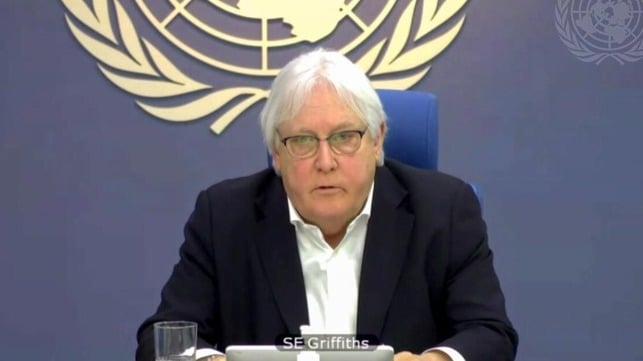UN Considers New Solutions for Aging Yemen FSO Safer

The United Nation’s Special Envoy to Yemen, British diplomat Martin Griffiths, is talking about new approaches to the stalemate that is currently preventing the U.N.’s plans to address the aging FSO holding one million barrels of oil anchored off Yemen. Experts have warned that the vessel is in danger of leaking, which would cause an environmental disaster in the Red Sea region.
“We’re focused on trying to make this thing happen at the moment, but ... you’d be stupid if you didn’t also look over the horizon and say, `Is there a better way to do this?’” the Associated Press is reporting Griffiths said after conducting a briefing to the UN Security Council. The diplomat who is completing a three-year assignment as a peace envoy spoke of the miscommunications and frustrations in not having been able to proceed with the UN’s proposed assessment of the vessel, but noted that “If there’s a quicker way to do it, we should all be happy.”
Griffiths noted that he had largely been in an observer’s role for the past three years, but this summer he is transitioning to a new position as Under-Secretary-General for Humanitarian Affairs and Emergency Relief Coordinator in the UN Office for the Coordination of Humanitarian Affairs. He will have more direct responsibilities.
In addition to trying to make the technical mission work, he said, “I think we should also look at what are the options.” Asked by reporters what options might be available, Griffiths declined to detail all the alternatives, but spoke of “commercial private sector efforts,” saying there were multiple offers. He noted that Iranian officials have offered a replacement vessel to satisfy the Houthis who want to retain control of the oil stored on board and the future potential to restore Yemen’s oil trade.
The 45-year-old vessel has been serving as floating oil storage off Yemen since 1988 and has become the focus of attention as experts fear that the lack of maintenance could cause an oil leak. The FSO Safer is anchored off the Yemen port of Ras Issa in an area controlled by the Iranian-backed Houthis rebels.
Ten days ago, the UN Security Council was briefed on the status of the efforts to access the vessel and begin a process to provide maintenance. After months of negotiations with the Houthis, the UN was told that the rebels had said they were at an impasse, accusing the UN of not following through on the terms of the earlier agreement.

that matters most
Get the latest maritime news delivered to your inbox daily.
The UN is asking the rebels to permit an inspection team to visit the vessel to complete a survey and identify areas of the vessel that need maintenance and possibly perform some small tasks in support of the skeleton crew that remains aboard the vessel and has been addressing the most urgent maintenance issues. The fear is that the vessel was scheduled for decommissioning in the early 2000s. Basic systems aboard the vessel are offline and its owners have reported that they are unable to provide for its larger maintenance requirements.
The permanent representative to the UN from Yemen warned the security council at the early June briefing that the vessel was becoming a bargaining chip for the Houthis. The most recent talks reportedly stalled over a range of issues, including the Houthis requirement that their security forces had to supervise each of the UN inspectors and the Houthis demand that the UN team complete repairs during the mission. Any actions will require the support of the Houthis, which currently control the region.
